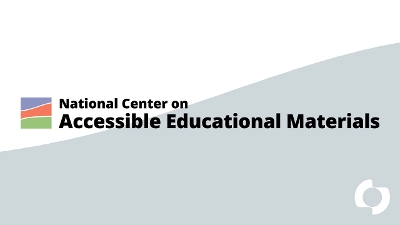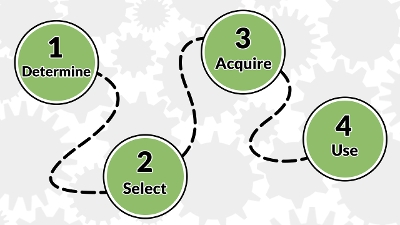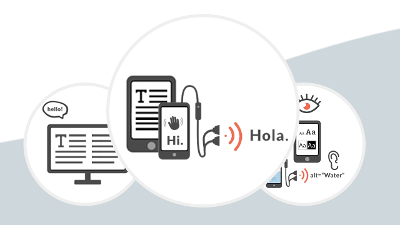Showing results 31-40 of 192 for Accessible Educational Materials
Search results
-
Policy Brief
J. Karger, 2020
This issue brief discusses the potential benefits of accessible digital learning materials for students who are deaf or hard of hearing (DHH).
-
Report
AEM Center at CAST, 2022
Find initial considerations for improving the accessibility of state-mandated assessments for students with disabilities.
-

Get started on your accessibility journey by selecting AEM Center resources based on your role.
-

What actions need to be taken so that learners who need accessible formats receive them in a timely manner? Whether a learner is in PreK-12, higher education, or career training, the process is multi-step.
-
Guide

AEM Center at CAST, 2022
Protocol to provide detailed yet easily implemented techniques for evaluating the accessibility of web-based OER for learners with disabilities.
-
Article
C. Curry, et al., 2018
Learn what accessibility means, why it’s important, who requires it, and how educational agencies can meet their responsibilities.
-
Guide

AEM Center at CAST, 2021
Learn detailed yet easily implemented techniques for evaluating the accessibility of open education resources in a variety of formats.
-
Presentation
6:00PM – 7:00PM ET on Tuesday, March 19, 2024
Join this session to gain insight on easy-to-implement techniques to create educational materials and vet technology tools for accessibility. Participants will learn how to create accessible Google and Word docs and how to quickly decide which tools should be used and which ones should be left on the curb!
-
Webinar

11:15AM – 12:15PM ET on Wednesday, June 15, 2022
Learn how to use the POUR principles of accessible design to vet educational materials for accessibility and ensure their use does not result in barriers to equitable participation in learning for all students.
-
Guide
PACER & AIM Centers, 2010
Some students with disabilities have difficulty reading textbooks and other learning materials. For example, a student who is blind may not be able to see a book, and a student who has a physical disability may not be able to hold the book. …
